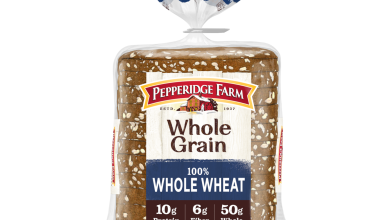Soft White Wheat: Nutritional Benefits and Uses in Healthy Recipes
Soft White Wheat: A Nutrient-Rich Ingredient
Soft white wheat is a versatile, whole grain ingredient commonly used in a wide range of baking applications, such as breads, cakes, and pastries. It is recognized for its mild flavor and fine texture, making it a favorite choice in both home kitchens and professional baking settings. In addition to its culinary uses, soft white wheat is packed with essential nutrients, offering a variety of health benefits. Below, we explore the nutritional content of this wholesome ingredient.
Nutritional Information
Here’s a breakdown of the nutritional values found in a 100g serving of soft white wheat:
| Nutrient | Amount |
|---|---|
| Energy | 340 kcal |
| Protein | 10.69 g |
| Total Fat | 1.99 g |
| Saturated Fat | 0.368 g |
| Carbohydrates | 75.36 g |
| Dietary Fiber | 12.7 g |
| Sugar | 0.41 g |
| Calcium | 34 mg |
| Iron | 5.37 mg |
| Magnesium | 90 mg |
| Phosphorus | 402 mg |
| Potassium | 435 mg |
| Sodium | 2 mg |
| Zinc | 3.46 mg |
| Copper | 0.426 mcg |
| Manganese | 3.406 mg |
| Selenium | 0 mcg |
| Vitamin C | 0 mg |
| Thiamine (Vitamin B1) | 0.41 mg |
| Riboflavin (Vitamin B2) | 0.107 mg |
| Niacin (Vitamin B3) | 4.766 mg |
| Vitamin B6 | 0.378 mg |
| Folate (Vitamin B9) | 41 mcg |
| Vitamin B12 | 0 mcg |
| Vitamin A | 0 mcg |
| Vitamin E | 1.01 mg |
| Vitamin D2 | 0 mcg |
Health Benefits & Dietary Considerations
Soft white wheat is a highly nutritious grain that offers numerous health benefits, primarily due to its rich fiber content. The dietary fiber (12.7g per 100g) promotes healthy digestion, helps manage weight, and reduces the risk of heart disease by supporting healthy cholesterol levels. The whole grain nature of soft white wheat ensures that it retains essential minerals like magnesium, phosphorus, and zinc, all of which contribute to overall bone health, energy metabolism, and immune function.
Rich in Protein: With 10.69g of protein per 100g, soft white wheat provides a plant-based source of protein, essential for muscle repair and growth. This makes it an excellent addition to vegetarian or vegan diets.
Packed with Minerals: It contains significant amounts of iron (5.37mg) and magnesium (90mg), both crucial for supporting oxygen transport and muscle function, respectively.
Low in Saturated Fats: The low levels of saturated fat (0.368g) make soft white wheat a heart-healthy choice, fitting well into balanced diets that promote cardiovascular health.
Allergen Information
Soft white wheat contains gluten, making it unsuitable for individuals with celiac disease or gluten sensitivities. It is important to check for alternative gluten-free grains if you need to avoid gluten for health reasons.
Dietary Preferences
Soft white wheat is a beneficial ingredient for those following plant-based, vegetarian, or whole food diets. It can be incorporated into various recipes ranging from bread to pancakes, ensuring a nutritious option for those seeking high-fiber, low-fat, and protein-rich foods.
Conclusion
Soft white wheat offers a range of nutritional benefits that make it a valuable addition to your pantry. It is particularly rich in fiber, protein, and essential minerals, while being low in unhealthy fats. Whether you’re baking bread, preparing pasta, or making wholesome cereals, this nutrient-packed grain can elevate your meals while contributing to a balanced and healthy diet. However, those with gluten sensitivities should look for gluten-free alternatives.








